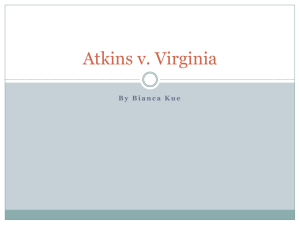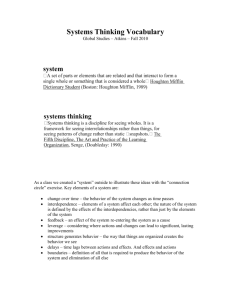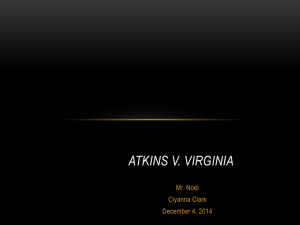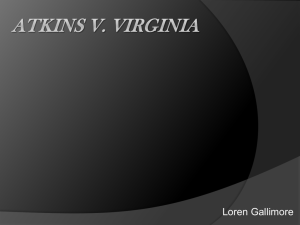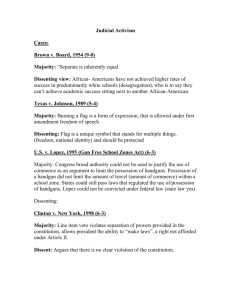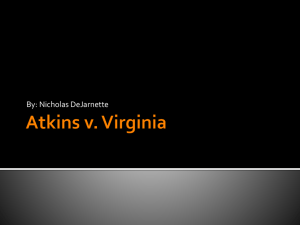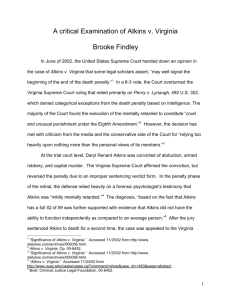ATKINS v. VIRGINIA Term: 20002009 2001 Location: York County
advertisement
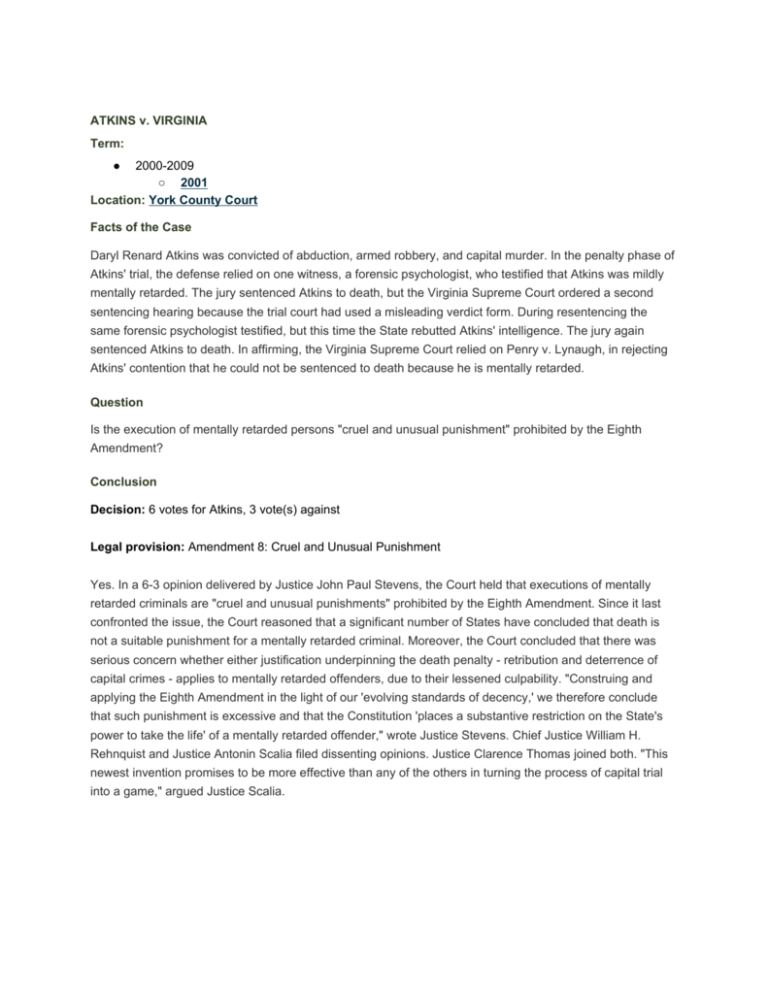
ATKINS v. VIRGINIA Term: ● 2000­2009 ○ 2001 Location: York County Court Facts of the Case Daryl Renard Atkins was convicted of abduction, armed robbery, and capital murder. In the penalty phase of Atkins' trial, the defense relied on one witness, a forensic psychologist, who testified that Atkins was mildly mentally retarded. The jury sentenced Atkins to death, but the Virginia Supreme Court ordered a second sentencing hearing because the trial court had used a misleading verdict form. During resentencing the same forensic psychologist testified, but this time the State rebutted Atkins' intelligence. The jury again sentenced Atkins to death. In affirming, the Virginia Supreme Court relied on Penry v. Lynaugh, in rejecting Atkins' contention that he could not be sentenced to death because he is mentally retarded. Question Is the execution of mentally retarded persons "cruel and unusual punishment" prohibited by the Eighth Amendment? Conclusion Decision: 6 votes for Atkins, 3 vote(s) against Legal provision: Amendment 8: Cruel and Unusual Punishment Yes. In a 6­3 opinion delivered by Justice John Paul Stevens, the Court held that executions of mentally retarded criminals are "cruel and unusual punishments" prohibited by the Eighth Amendment. Since it last confronted the issue, the Court reasoned that a significant number of States have concluded that death is not a suitable punishment for a mentally retarded criminal. Moreover, the Court concluded that there was serious concern whether either justification underpinning the death penalty ­ retribution and deterrence of capital crimes ­ applies to mentally retarded offenders, due to their lessened culpability. "Construing and applying the Eighth Amendment in the light of our 'evolving standards of decency,' we therefore conclude that such punishment is excessive and that the Constitution 'places a substantive restriction on the State's power to take the life' of a mentally retarded offender," wrote Justice Stevens. Chief Justice William H. Rehnquist and Justice Antonin Scalia filed dissenting opinions. Justice Clarence Thomas joined both. "This newest invention promises to be more effective than any of the others in turning the process of capital trial into a game," argued Justice Scalia.
